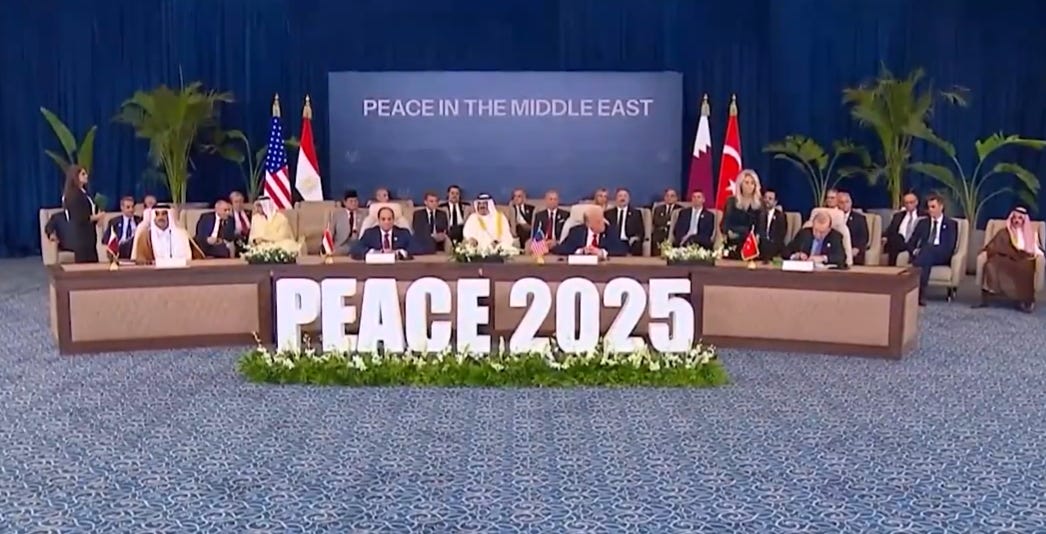Trump's Middle East ambitions
Saudi normalisation prospects, Lebanon war risks, and why everyone is stuck where they are.
American envoy to Syria and Turkey, Tom Barrack, clarified the Trump Administration’s aspirations for the Middle East. In a lengthy post on X on 20 October 2025, Barrack expressed his expectation of Syria and Saudi Arabia normalising ties with Israel, and his hope that Lebanon would disarm Hezbollah before doing the same. Implied within his post was a threat that Israel would attack Lebanon and Hezbollah again ahead of the May 2026 parliamentary elections.
Lebanon
Nothing has changed in Lebanon. Hezbollah is not under enough pressure to disarm, and it is unwilling to leave its fate in the hands of Syrian jihadis, Israel, and America’s allies in the Lebanese government.
Israel, for its part, is unwilling to take the losses required to advance deep into Lebanon and dismantle Hezbollah. This leaves overtly allying with the jihadis in Syria against Hezbollah as the only option, with Israel conducting airstrikes in support of a Syrian advance against Hezbollah.
The impact of such a policy on Israel’s already shattered international reputation militate against it: the American right, for which Israel has become an important wedge issue, would turn even more anti-Israeli and even anti-Jewish. The American left is fully opposed to Israel already, except for its leading politicians who worry about donations and the security state’s influence.
Syria
For the Sunnis in Syria, open normalisation with Israel is a problem for several reasons.
First, there are the foreign jihadis. Fighting against those already started as of 22 October 2025, but an open reconciliation with Israel would blow this up all the way. Second, full normalisation would imply normalised transportation links. The Syrian authorities cannot trust Israel not to transport weapons to the Kurds, Druse, or Alawites, nor does it have the power to police its borders properly. Third, Syria cannot concede additional territory to Israel, more than the Golan Heights, nor is Israel willing to withdraw from any of the new territories along the Golan that it has captured, let alone the Golan itself. Fourth, Syrian President Ahmad al-Shara’ (Abu Mohammad al-Jolani) cannot appear to be more willing to concede Syrian territory than the Assad clan.
Saudi Arabia
Saudi Arabia has insisted since the 1980s that a Palestinian state is a pre-requisite for normalisation, regularly offering its support for a genuine two-state solution. Furthermore, it does not want several things:
It does not want Arab countries to normalise with Israel without it; rather, it wants to be the country that delivers and legitimises normalisation by building an Arab consensus.
It does not want to be just another UAE, Bahrain, or Egypt. Instead, it wants to show that it leads the Arab world.
It does not want to appear to be abandoning the key Muslim cause, which is Palestine. Nor does it want to appear to reward Netanyahu for his brutality against Gaza.
Most importantly, it does not want to antagonise Trump.
Saudi Arabia therefore must insist on a Palestinian state, knowing full well that the Israelis will never accept it. All while stringing the Americans along and promising normalisation.
Briefly, everyone is stuck exactly where they are. Trump’s ambitions are delusional. The only change would come if the Americans were to genuinely use their enormous leverage over Israel to extract concessions from it in exchange for explicit, written, security guarantees or even a formal alliance. That said, any Israeli government that approves a Palestinian state, withdraws from Syria and Lebanon, and accepts enormous American guarantees would likely be electorally doomed. It is difficult to see how the Americans can change that.


